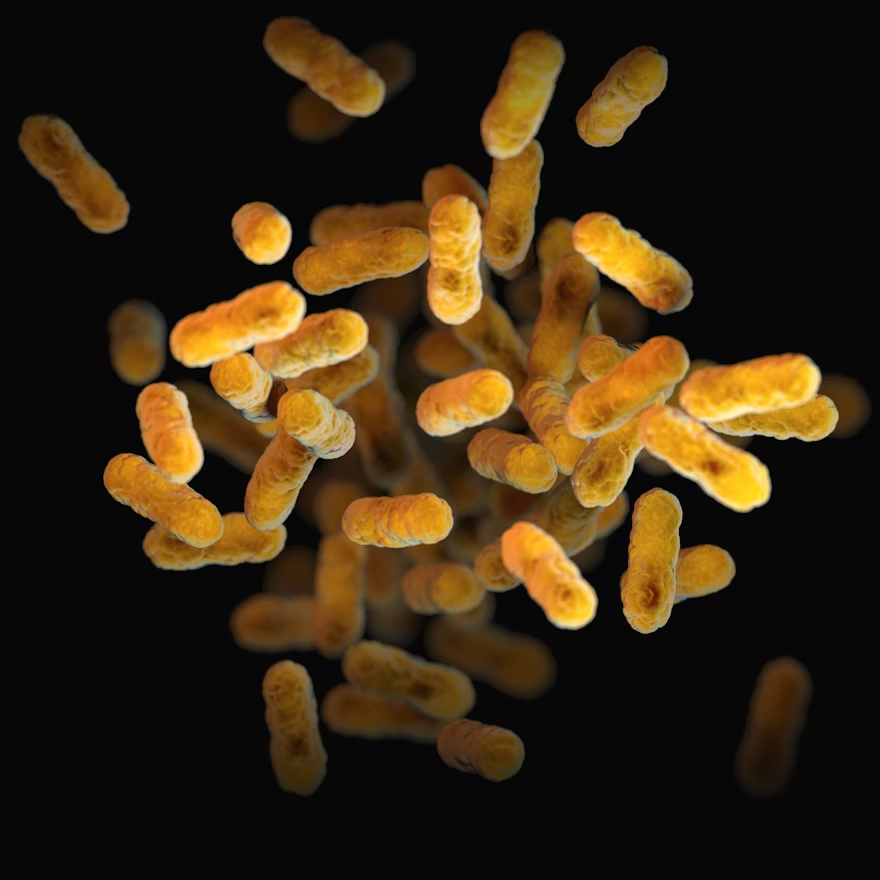The gut microbiome is the collection of bacteria, archaea, and eukarya that reside in the human gastrointestinal tract. Due to its roles in a broad range of physiological functions, the gut microbiome is now thought of as an organ of the body. We all know that the balance of microbial composition in the gut is essential in maintaining health, but have you ever wondered: “What are the major bacteria that reside in my gut?” Don’t worry, we’ve got you covered.
What are Bacteroidetes and Firmicutes?
While genera of bacteria like Bifidobacteria and Lactobacillus might be familiar to you, they only make up a small percentage of your gut microbiome. Bacteroidetes and Firmicutes are the two major bacterial phyla that account for about 90% of your gut microbiota. Both Firmicutes and Bacteroidetes are found to be responsible for carbohydrate metabolism; they also participate in energy production and conversion, amino acid transport and metabolism, and production of short-chain fatty acids (SCFAs). However, unlike Bacteroidetes, Firmicutes may also have a less positive influence on health when they are in overabundance in your gut.
The Firmicutes/Bacteroidetes Ratio
Changes in the Firmicutes/Bacteroidetes (F/B) ratio in the gut have been suggested to cause various diseases. For instance, an increased or high F/B ratio (high Firmicutes, low Bacteroidetes) is associated with the development of obesity, while a decreased or low F/B ratio (low Firmicutes, high Bacteroidetes) is linked to inflammatory bowel disease (IBD). Thus, maintaining Bacteroidetes and Firmicutes at just the right balance in the gut is important, especially when it comes to managing obesity and other metabolic conditions.
Including probiotics in the diet is a great way to maintain the balance of microbial composition in the gut. However, different probiotics exert different effects on the F/B ratio. It is therefore important to choose the appropriate probiotic strain or mixture to ensure optimal effects. Besides probiotics, polyphenols are another alternative. Polyphenols are micronutrients that are highly present in vegetables and fruits. Based on the findings of various preclinical and clinical studies, polyphenols are found to be able to express prebiotic properties and exert anti-inflammatory properties, which can then aid in preventing intestinal dysbiosis.
References
- Thursby E, Juge N. Introduction to the human gut microbiota. Biochem J. 2017;474(11):1823-1836. Published 2017 May 16. doi:10.1042/BCJ20160510
- Ley RE, Bäckhed F, Turnbaugh P, Lozupone CA, Knight RD, Gordon JI. Obesity alters gut microbial ecology. Proc Natl Acad Sci U S A. 2005;102(31):11070-11075.doi:10.1073/pnas.0504978102
- Magne F, Gotteland M, Gauthier L, et al. The Firmicutes/Bacteroidetes Ratio: A Relevant Marker of Gut Dysbiosis in Obese Patients? Nutrients. 2020;12(5):1474. Published 2020 May 19. doi:10.3390/nu12051474
- Stojanov S, Berlec A, Štrukelj B. The Influence of Probiotics on the Firmicutes/Bacteroidetes Ratio in the Treatment of Obesity and Inflammatory Bowel disease. Microorganisms. 2020;8(11):1715. Published 2020 Nov 1. doi:10.3390/microorganisms8111715
- Kumar Singh A, Cabral C, Kumar R, et al. Beneficial Effects of Dietary Polyphenols on Gut Microbiota and Strategies to Improve Delivery Efficiency. Nutrients. 2019;11(9):2216. Published 2019 Sep 13. doi:10.3390/nu11092216




















